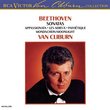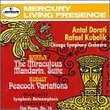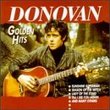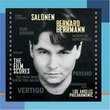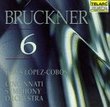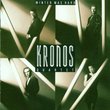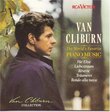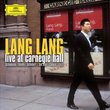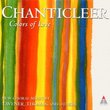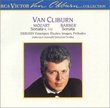| All Artists: Carter, Oppens, Gielen Title: Piano Concerto / Concerto for Orchestra Members Wishing: 0 Total Copies: 0 Label: Arte Nova Records Release Date: 1/1/1998 Genre: Classical Styles: Forms & Genres, Concertos, Historical Periods, Modern, 20th, & 21st Century, Instruments, Keyboard, Symphonies Number of Discs: 1 SwapaCD Credits: 1 UPC: 743212777321 |
Search - Carter, Oppens, Gielen :: Piano Concerto / Concerto for Orchestra
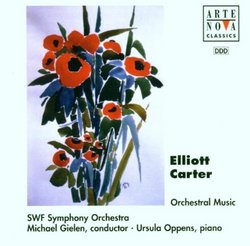 | Carter, Oppens, Gielen Piano Concerto / Concerto for Orchestra Genre: Classical
|
Larger Image |
CD DetailsSimilarly Requested CDs
|
CD ReviewsDifficult but Rewarding 12/08/1999 (5 out of 5 stars) "I find it odd how some people can hear serialism where none exists. Carter's music is exceedingly (but not excessively) complex at times and inhabits a dense soundworld that untutored ears might confuse with the likes of Babbitt or Sessions, but a closer examination of these and other works should reveal that Carter's approach is fundamentally different. His music is more akin to the intuitively craggy lines one might find in Ives. Ned Rorem once described Carter's music as "thickened Ives." (Just take out the marching bands and fiddle tunes.) The price of this set may be inviting to some, though the music will probably be disconcerting to many unfamiliar with Carter's musical idiom. More accessible Carter can be found in the early Variations for Orchestra (try the blazing Levine recording on DG) or the recent Clarinet Concerto (Collins/Knussen on DG). But this disc does contain some of Carter's finest music and should prove rewarding once the listener can comfortably follow the musical argument. The Three Occasions are the "easiest" pieces, and it would be adviseable to start with those first. The sound clips are good representaives of what you'll find in these works. I would suggest therefore that prospective buyers decide for themselves." Carter doesn't belong to any school. Karl Henzy | 09/27/1999 (5 out of 5 stars) "CowfordEd just doesn't get Carter at all, otherwise he wouldn't make such erroneous comments. One of Carter's most distinguishing characteristics is that he has never belonged to any school. While both the fashionable schools of the sixties, total serialism and aleatoricism, removed choice from the composer, Carter infused every second of his music with new creative choices. That someone could talk about the sameness of perhaps the most dynamic music of our time is hard to believe, unless it's someone who just has to have a pleasant little melody to lead him through the musical maze. My gosh--Barber's too radical for this guy! I can see why Carter would be out of the question." This CD features amazing music for a low price. Karl Henzy | 12/07/1998 (5 out of 5 stars) "This CD is a steal, at something like 5 or 6 bucks. Concerto for Orchestra is probably the richest orchestral work of the late 20th-Century, with multiple layers of whirring, explosive, dynamic sound. Oppens' playing on the Piano Concerto is almost unbelievably virtuosic. The SWF Orchestra is perhaps little-known in the USA, but they're among the best at 20th-Century music in the world (Carter has commended them in interviews). This CD is not for listeners who object to dissonant chords or irregular rhythms, and fans of Phillip Glass should stay away. This is maximalist, not minimalist, music."
|

 Track Listings (6) - Disc #1
Track Listings (6) - Disc #1